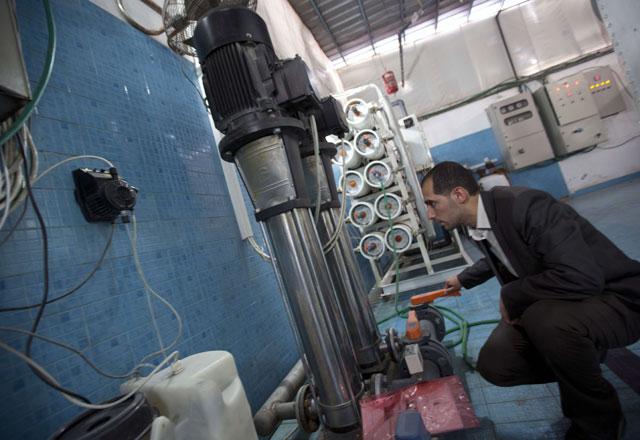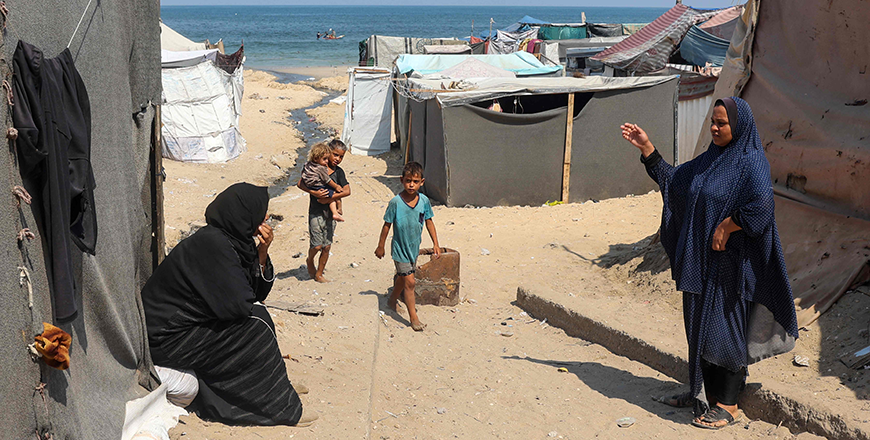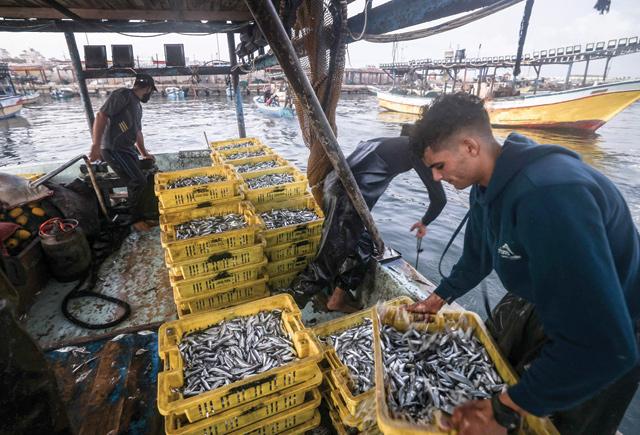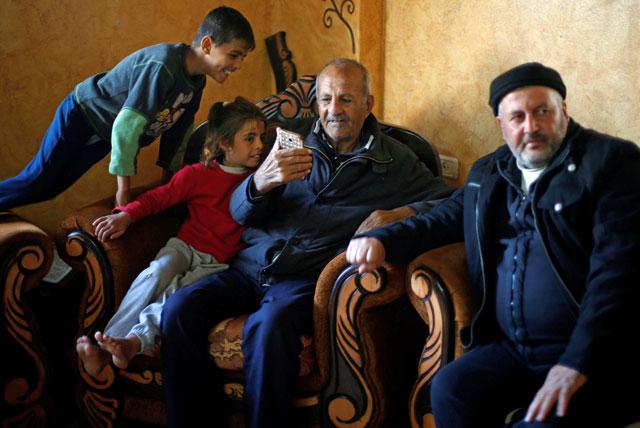You are here
Gaza engineer seeks solution to water woes
By AFP - May 12,2015 - Last updated at May 12,2015

Gaza City, Palestinian Territories — With Gaza's supply of drinking water expected to dry up by 2020, a Palestinian engineer is pioneering a machine to make seawater potable for residents of the coastal territory.
Diaa Abu Assi, a 29-year-old father-of-two, has spent much of his spare time in the past 18 months developing the system, which he hopes will be instrumental in saving lives in the besieged enclave.
"In five years, there will be no drinkable water in Gaza," Abu Assi says. "Water shortages are a real threat to life in Gaza. The only solution is to filter water from the Mediterranean."
Funded by Gaza's Islamic University — which is linked with the enclave's rulers Hamas — in cooperation with an Omani research organisation, the project uses nanotechnology to reduce the salinity in seawater to a drinkable level.
It pumps water at high speed through large iron pipes and filters made of nano-material to extract the saline. The water is then retreated with minerals that were removed during the desalination process.
The filter contains microscopic pores which are small enough to block the chlorine and sodium ions in seawater while allowing through the water molecules.
"The idea is to save Gaza from the disaster that awaits it in the next five years by using the one resource we do have — seawater," Abu Assi says.
Gaza, home to 1.8 million Palestinians, consumes 180 million cubic metres of water per year, half of which is used in agriculture and industry.
Gaza could be 'uninhabitable'
The United Nations estimates that Gaza's population will grow by almost another 500,000 people in the next five years, which will push demand to an expected 260 million cubic metres of water annually.
Given Gaza's current water resources, the territory would become "uninhabitable", according to Robert Turner, director of operations in Gaza for the UN agency for Palestinian refugees (UNRWA).
Gaza now depends on groundwater from its coastal aquifer for supplies, but the enclave's water authority says 97 per cent of its resources are polluted due to over-extraction and sewage contamination.
Abu Assi's machine can treat some 1,000 litres a day — a drop in the ocean for now, but he and his partner, fellow engineer Ala Al Hindi, say they will not stop there.
Hindi says they are seeking $300 million (274 million euros) to build a water treatment plant that has a much greater capacity.
But given the reality in Gaza, the two have struggled to raise funds.
"There's always a fear that projects will be destroyed in the next Israeli bombardment," Hindi says.
During last summer's 50-day war with Israel — which claimed 2,200 Palestinian lives and 73 on the Israeli side — Gaza's sole power station was hit, causing hours-long blackouts.
Abu Assi and Hindi have asked the Palestinian government based in Ramallah for assistance, but have had no response.
Local officials have no doubt of the need for a sustainable water supply.
'Alternative sources' needed
Munzer Shublaq, a water authority official in Gaza, said it was essential to "find alternative sources and stop pumping from the aquifer".
To meet current needs, authorities are having to pump four times the amount of water from the aquifer than is acceptable, Shublaq said.
The UN has warned the aquifer could become unusable as early as next year.
"With no perennial streams and low rainfall, Gaza relies almost completely on the underlying coastal aquifer," an UNRWA report from 2012 said.
"As groundwater levels subsequently decline, seawater infiltrates from the nearby Mediterranean Sea."
Pollution of drinking water is "compounded by contamination of the aquifer by nitrates from uncontrolled sewage, and fertilisers from irrigation of farmlands", it said.
The World Health Organisation has warned of the danger, noting that diarrhoea among children is on the rise.
Abu Assi hopes his project can help before it's too late.
"The lives of nearly two million people are at stake," he says.
Related Articles
Khan Yunis — In war-ravaged Gaza, every drop of water counts, making Inas al-Ghul's makeshift sun-powered water filter a vital asset f
He is angling for more discerning catches like grouper, sea bream and large shrimp, which can go for around 70 shekels ($22) a kilo — a small fortune in the impoverished enclave, under Israeli blockade since 2007.
GAZA — Looking out across the Mediterranean, the elderly Gaza fisherman sits on a bench adorned with just one word — Jaffa.Mahmoud Al Assi c

















